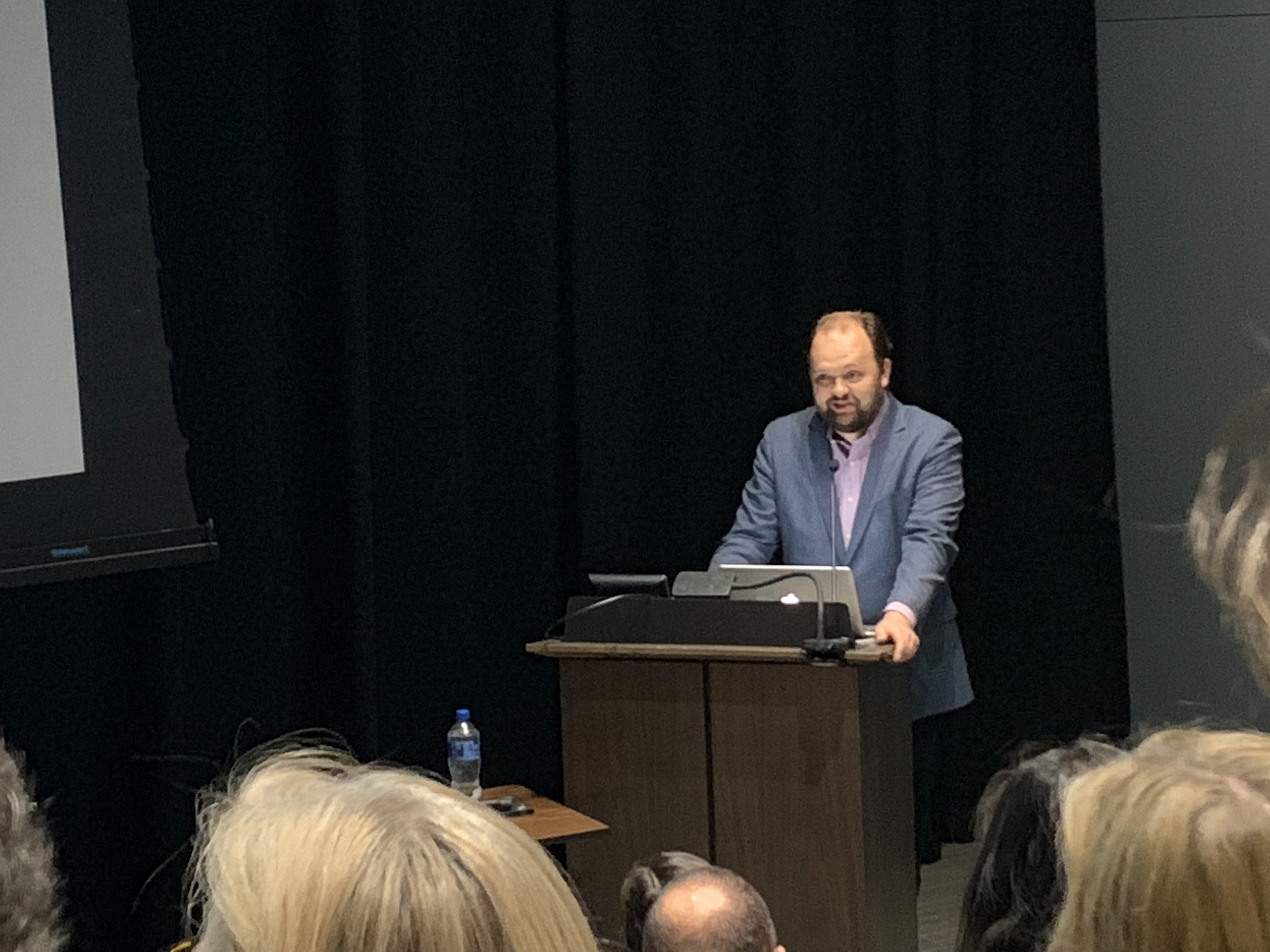Yesterday, New York Times op-ed columnist Ross Douthat spoke in Oshman Hall about how to “save the humanities” in an ever-growing modern technocracy. The Harvard graduate and author of four nonfiction works presented a graph from The Atlantic showing the precipitous decline in humanities enrollment since the 2008 financial crisis.
According to Douthat, higher education has battled “a constant rhetoric of crisis surrounding the humanities,” suggesting the economic impracticality, inapplicability and undesirability of a major in one of the five disciplines shown above. While this trend looks conclusive enough, Douthat went on to emphasize that this pattern is even sharper amongst elite institutions.
“There is a deep misconception that humanities majors do not reap the same financial rewards [as those in STEM],” he said. “In truth, the difference is comparable to prices of living in Virginia versus North Carolina: The gap is negligible enough not to factor in your decision of where to live.”
Though this drop in humanities enrollment has recently leveled off — and Douthat believes it will continue to correct itself — he asked the audience whether there was a better way to increase enrollment in the humanities. To this day, he added, an education in the humanities is still perceived as a luxury good and a non-viable career path. Douthat said that elite institutions constantly attempt to sway students in the direction of STEM disciplines. Otherwise, he said, universities claim that, “You can major in folklore and mythology and prancing with fairies for four years before having a long and successful career at McKinsey.”
This decline of interest in the humanities is a definite shift from the rhetoric of the mid-20th century, wherein, according to Douthat, 65 percent of polled college students hope to attain “a meaningful philosophy of life” and 35 percent wanted to set themselves up for an occupation. Today, he explained, these percentages are flipped.
In response to this, the San Francisco-born journalist proposed a five-pronged approach to saving the humanities.
First, Douthat called for the recovery of a canon — one that is responsive to multiculturalism and reflects changes in American society. Douthat claimed that there are certain books, artworks, philosophies and pieces of music to which students must be exposed to claim intellectual fulfillment.
“This is a hard project,” he conceded, “but necessary for the humanities to offer something that coheres, has shape, is specific and is competitive with technocratic subjects.”
Second, Douthat advocated for openness to metaphysical possibility and the desecularization of elite institutions to reflect some religious experience or ideology. He maintained that the humanities are inextricably related to spirituality, and that serious theological thinking is necessary to revive the humanities. Douthat himself is Catholic and mentioned this during the lecture.
Next, Douthat pushed for a new narrative of American history, especially pertaining to political science, international relations and history. He argued that this can easily include the radical revision of wrongs and a sense of a minority experience, but, “If you take prominent figures down in history, they must be replaced to create a story of [beneficial] collective memory.”
He also cited dissociation from the internet as an important step on this path. Douthat argued that intent of the internet is “hostile to humanistic learning … particularly in its ability to make people superficial and polarized.” Hence, he said, the humanities must serve as a mechanism through which you can escape this bubble of technology and build alternative spaces.
Douthat concluded his five-step approach with a recognition that conservatism needs the humanities, and vice versa. According to Douthat, both are confused and have been led astray because they have lost one another. In his understanding, both conservatism and the humanities build structures of meaningfulness. That said, he believes that a plausible alliance between conservatives and liberals can come together to save the humanities.
Contact Ryane Liao at ryaneytl ‘at’ stanford.edu.
